Whether they’ve run out of ideas or are just trying to give audiences more of the things they love, Hollywood has been in the midst of a franchise remake epidemic that doesn’t show any signs of letting up. These films aren’t just trying to make a better or more modern version of an older movie; they’re trying to to be the spark the ignites a whole series of successful films.
We’ve seen several successful reboots over the last few years, including a double dose in 2015 in the form of Jurassic World and Star Wars: The Force Awakens, which were both massive commercial hits. But, as you’ll see, not all reboots are created equal. Here 20 movies are a few that failed to breathe new life into a franchise.
20. The Incredible Hulk (2008)
The Incredible Hulk is a strange case in that it was technically a reboot following Ang Lee’s divisive 2003 film Hulk, but was part of the larger Marvel Cinematic Universe – a franchise it now, ironically, feels at odds with. Although The Incredible Hulk thankfully ups the quota on actual Hulk scenes compared to Lee’s film, it’s still very much the Bruce Banner show, and the problem with that is that the film doubles down on the idea of Banner rejecting his own superpowers. Admittedly, this decision is in keeping with how the character is often portrayed in comics and other media, but it doesn’t exactly make for most riveting standalone movie fodder.
You can tell that The Incredible Hulk was modified at the last minute to be part of the MCU, as tonally and structurally it bears hardly any resemblance to the many subsequent films we’d get from the franchise. Edward Norton turns in a decent lead performance but the movie as a whole was not the surefire win it needed to be to jump-start any Hulk solo movie brand. To Marvel’s credit, the studio recognized that the Hulk works better as a supporting character, and ever since Mark Ruffalo started playing Banner in The Avengers and beyond, things have improved dramatically for the big green guy.
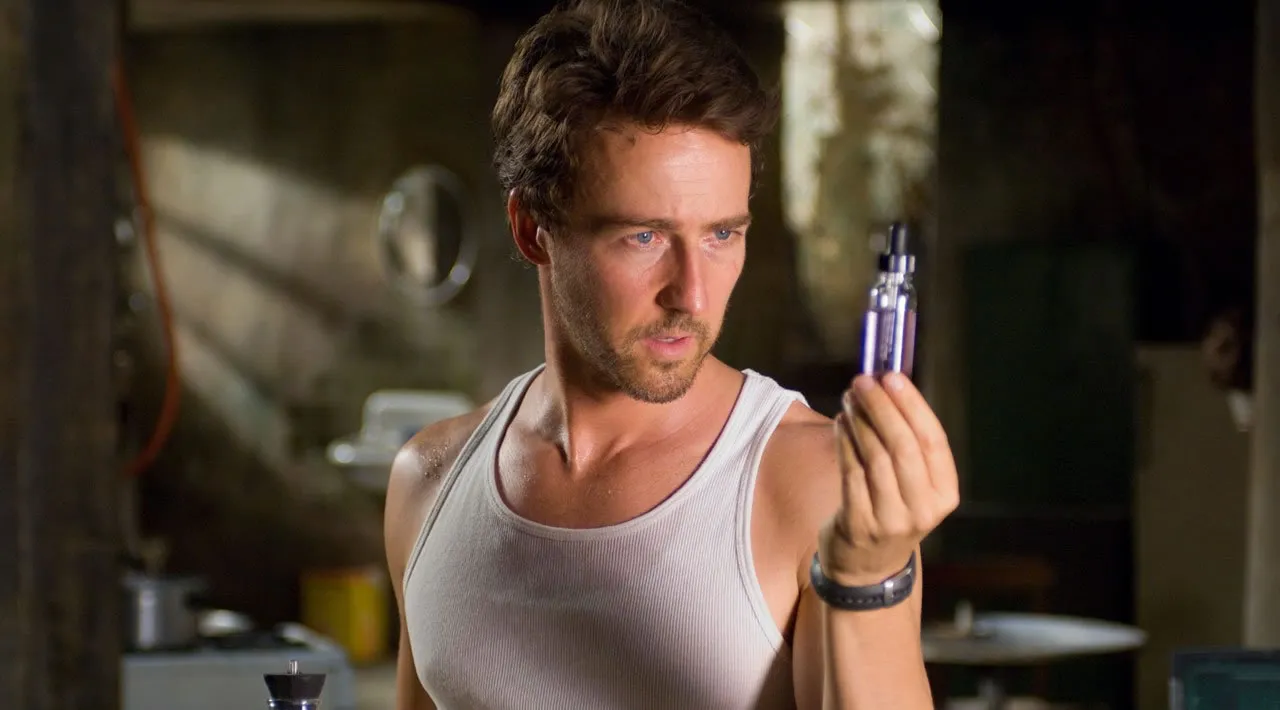 Source: Screenshot via Universal Pictures
Source: Screenshot via Universal Pictures19. A Nightmare on Elm Street (2010)
The original Nightmare on Elm Street was a horror classic that carved a niche in the genre and launched one of the highest-grossing horror franchises in history. Freddy Krueger and his bladed glove gave terrified adolescents everywhere ample reason to stay awake at night and fueled our nightmares for years afterward. However, this 2010 remake of the film starring Jackie Earle Haley as the iconic dream slayer pales in comparison. It’s usually challenging to introduce a new lead actor when rebooting a franchise. The consensus of the movie was that, despite remaining faithful to the visual style of the original, it lacked the depth and provocative twists that would have made it more memorable than tying all our childhood memories and feelings of nostalgia to this awful remake.
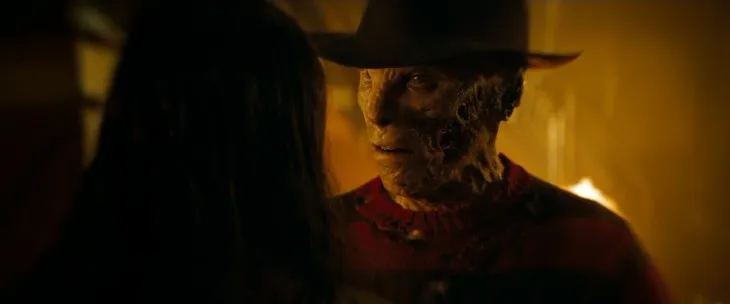 Source: Screenshot via Warner Bros. Pictures
Source: Screenshot via Warner Bros. Pictures18. Conan The Barbarian (2011)
With Conan already having such a strong cult following, there probably wasn’t much need to mess around too much with the proven formula in the remake. But despite his best efforts, Jason Momoa still lacks the magnetism of Arnold Schwarzenegger and Conan The Barbarian remake did extremely poor at the box office, signifying that many people probably preferred to remain loyal to the original movie. Unless you’re someone who goes into a berserker rage if you don’t get your fix of brutal, barbaric violence, this film isn’t really worth the watch — especially if you have the original on hand.
And speaking of the original Conan, since the remake failed so miserably, there are rumors swirling that Schwarzenegger might reprise his role in a sequel to Conan the Destroyer. If that’s the case, you should probably skip this remake altogether.
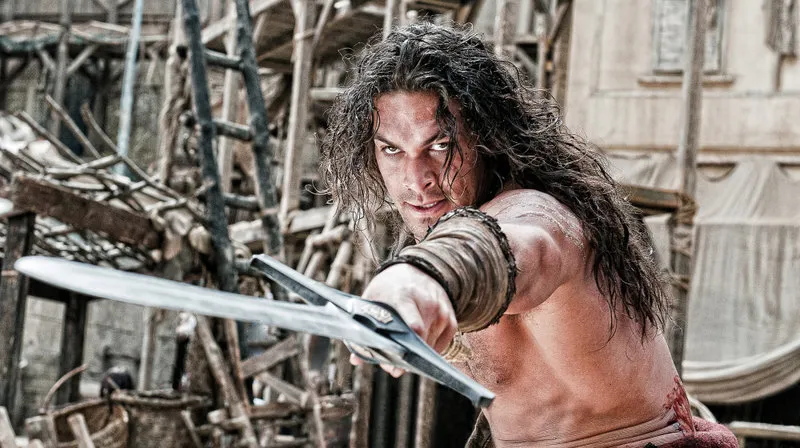 Source: Screenshot via Lionsgate
Source: Screenshot via Lionsgate17. The Karate Kid (2010)
Anyone who doesn’t want to have their appreciation for the original Karate Kid completely ruined should probably steer clear of this 2010 remake. Jaden Smith isn’t fit to wax on or wax off Ralph Macchio’s 1948 Ford Super DeLuxe Club convertible, let alone take his place as the Karate Kid. Not even the boundless charisma of Jackie Chan as the updated Mr. Miyagi could save this movie from being one of the worst remakes in history.
The premise of a Detroit kid moving to Beijing didn’t resonate with audiences. Sure, the fish out of water aspect from the original is still there, but it doesn’t develop into anything that would be considered a convincing portrayal. Oh ya, and did we mention that there isn’t even a lick of karate in the whole movie? It’s all about kung fu! They should have just called this movie The Kung Fu Kid and made it a separate movie rather than tying all our childhood memories and feelings of nostalgia to this awful remake.
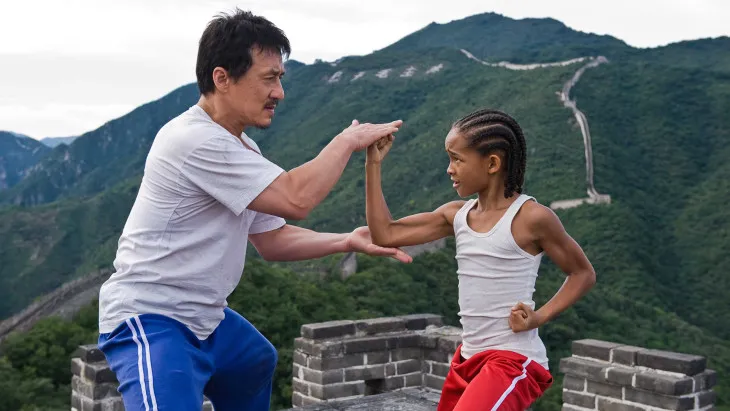 Source: Screenshot via Sony Pictures
Source: Screenshot via Sony Pictures16. RoboCop (2014)
Paul Verhoeven’s 1987 film RoboCop is a viscerally thrilling sci-fi film filled with sharp social commentary, a seedy underbelly, and an all-time great baddie in Kurtwood Smith’s Clarence Boddicker. After years of dormancy, the franchise was rebooted in 2014 with Joel Kinnaman (Suicide Squad) replacing Peter Weller as the titular cyborg police officer. While the film sported some crisp visuals and action sequences, it lacked the teeth of the original, offering little in the way of deep thematic underpinnings; an issue made all the more pronounced by the decision to slap the reboot with a PG-13 rating as opposed to Verhoeven’s film and its hard R rating. The result was a decently entertaining sci-fi action film that couldn’t live up to the legacy of the original RoboCop.
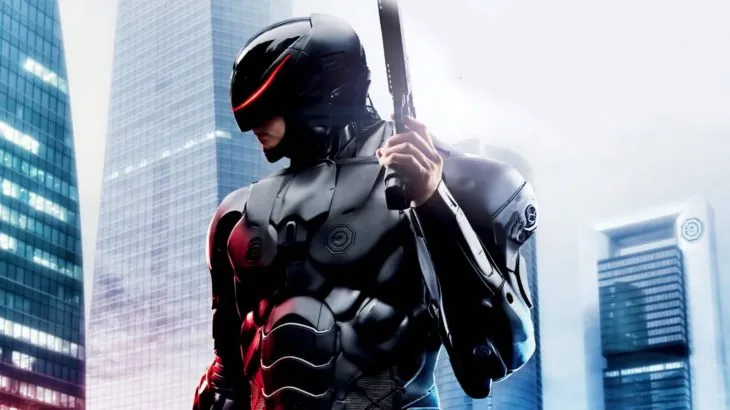 Source: Screenshot via Sony Pictures
Source: Screenshot via Sony Pictures15. Ghostbusters (2016)
Sony’s Ghostbusters reboot caught a lot of flak from furious fanboys for the decision to go with an all-female cast in the lead roles, to the point where many overlooked that Paul Feig’s 2016 film is arguably decently entertaining action-comedy that did right by the franchise. Unfortunately, Sony spent way too much on Ghostbusters, which essentially cut it off at the knees upon release and ensured that it would struggle to earn enough money to break even, let alone justify a sequel. In the end, the film did just “okay” in every measurable category, and though we’re sure to see more Ghostbusters films in the future, it will have to be considerably better (and cheaper) to make up for this reboot’s failure.
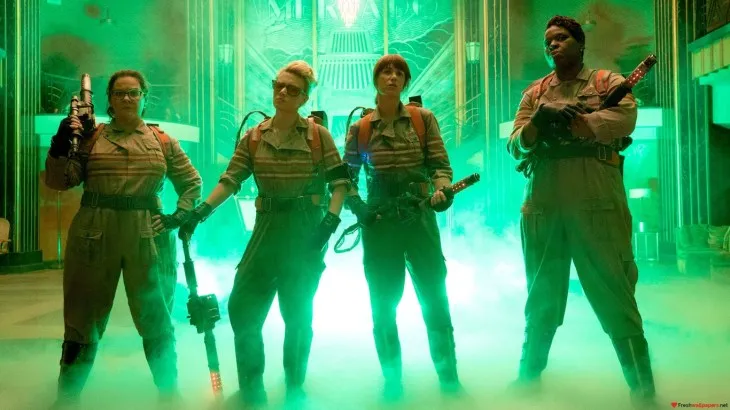 Source: Screenshot via Sony Pictures Releasing
Source: Screenshot via Sony Pictures Releasing14. Friday the 13th (2009)
Friday the 13th is another iconic horror franchise and features the hockey-mask wearing serial killer known as Jason Vorhees. But oddly enough, the character isn’t even the murderer in the first movie, and he doesn’t don his signature mask until Part III. One of the things that was so great about this movie series was how Jason seemed to evolve as it went on slowly, and fans were never sure exactly how things were going to play out.
On the other hand, the 2009 reboot of the franchise attempts to fit 11 movies worth of backstory into a single 97-minute film. Needless to say, it was a bit of a mess — not unlike one of Jason’s mutilated victims.
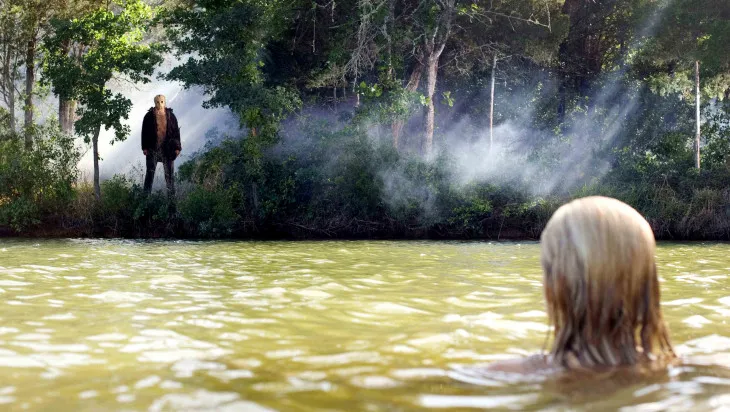 Source: Screenshot via New Line Cinema
Source: Screenshot via New Line Cinema13. The Wolfman (2010)
The Monster Movies from Universal may very well have been the first Cinematic Universe, showing the likes of Dracula, Frankenstein’s Monster, and the Wolfman each in their own separate pictures before having them come together for the ultimate monster movie mash-up. With so many excellent properties, it’s not surprising that the studio has tried to revive the franchise numerous times in more recent years. 2010’s The Wolfman was the latest attempt to give new life to the classic monster movie. But the significance of the franchise meant that there were a lot of people interfering with the project as it moved forward. As a result, the end product is unfocused and difficult to make sense of at times.
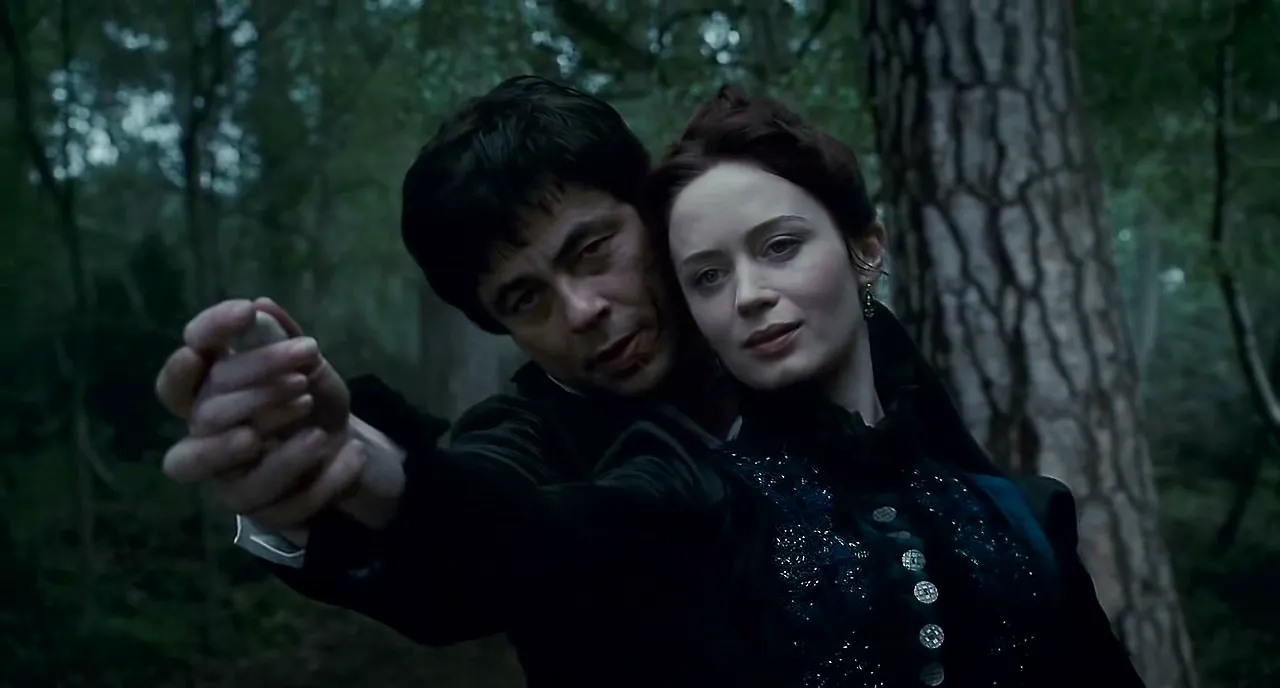 Source: Screenshot via Universal Pictures
Source: Screenshot via Universal Pictures12. Halloween (2007)
John Carpenter’s Halloween is a slasher masterpiece, introducing audiences to the terrifying killer Michael Myers, who is such a compelling antagonist primarily because of how remorseless he is. So naturally, the 2007 reboot strips away all that subtlety in favor of explaining in extraneous detail what makes Michael Myers tick, In fact, Rob Zombie’s film spends nearly its entire first hour just showing Myers’ childhood, with the latter half dedicated to a subpar retelling of Carpenter’s original story.
As if that wasn’t bad enough, Zombie turns the whole thing into a torture porn-Esque affair by doubling down on the brutality and also ruins the main character Laurie Strode (played so wonderfully by Jamie Lee Curtis in the 1978 film) by turning her into just another crass, horny teenager. Somehow, Zombie got to make an even worse sequel, but the franchise could be headed for redemption with the release of a direct sequel to Carpenter’s original film, set for release in late 2018.
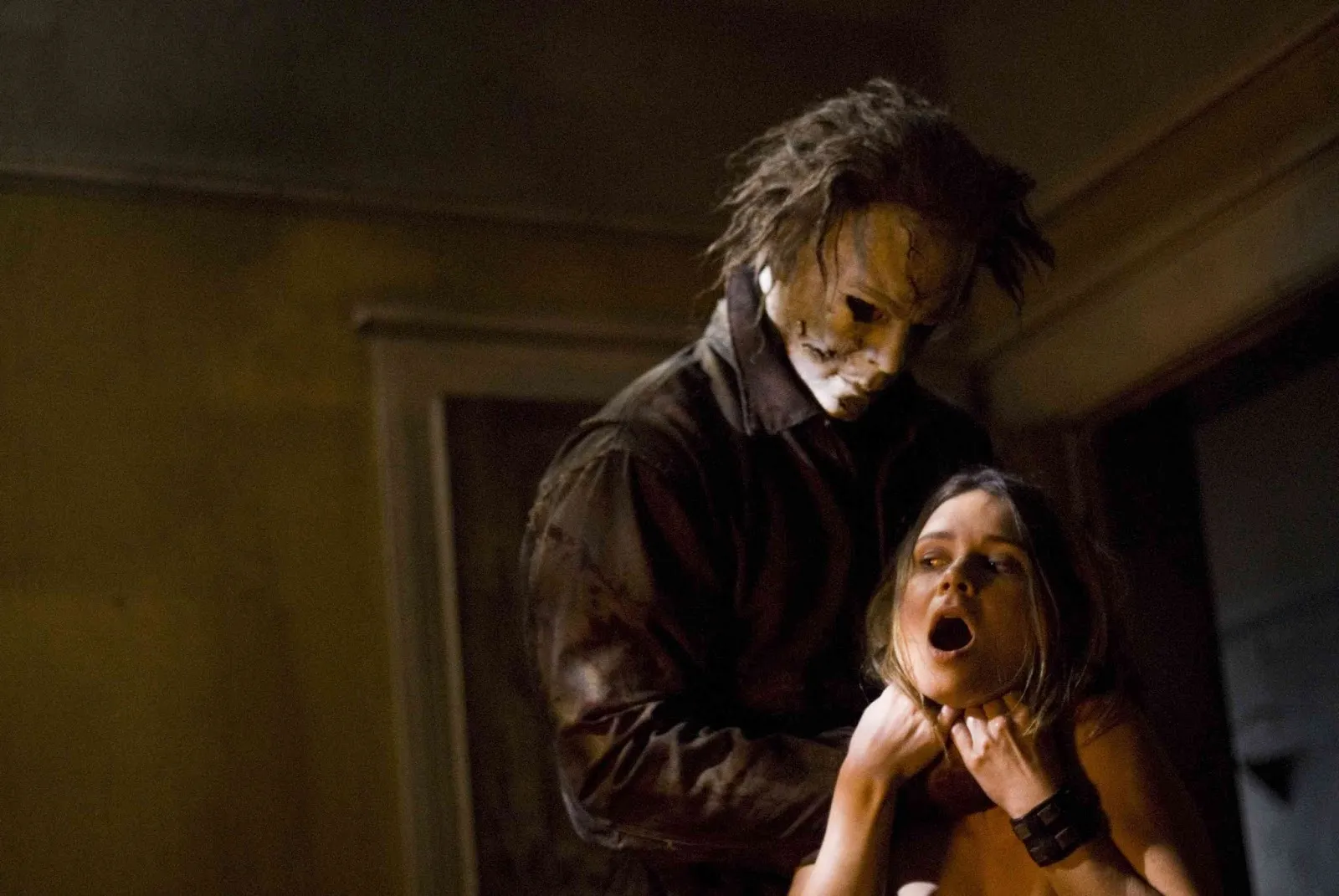 Source: Screenshot via Metro-Goldwyn-Mayer
Source: Screenshot via Metro-Goldwyn-Mayer11. Teenage Mutant Ninja Turtles (2014)
In his seemingly never-ending quest to ruin every beloved toy line from the 80s and 90s with terrible film franchises, Michael Bay-produced the 2014 live-action/CGI reboot Teenage Mutant Ninja Turtles and the results were just as disappointing as you’d expect. Much like Bay’s Transformers films, TMNT is loud and dumb, failing to capture the lovable charm that fans fell in love with the original Ninja Turtles TV show and other media from the late 80s/early 90s.
Despite being one of the worst-reviewed films of 2014, TMNT still managed to make almost half a billion dollars at the worldwide box office, which was enough to greenlight a sequel. Admittedly, 2016’s Out of the Shadows was a modest improvement over its predecessor, but it made considerably less money, prompting Paramount Pictures to scrap plans for the third film in favor of producing another reboot sometime in the future.
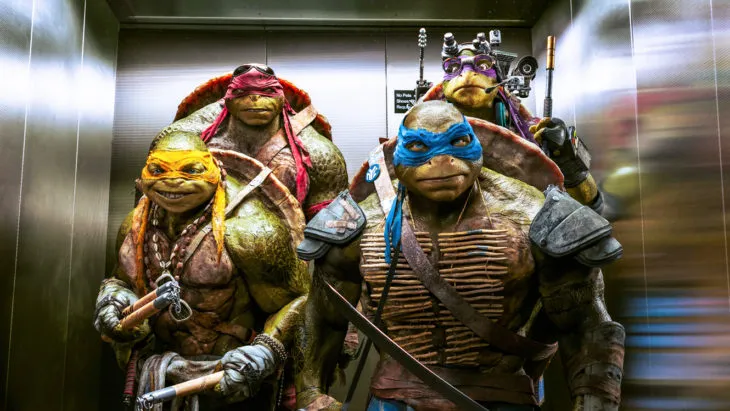 Source: Screenshot via Paramount Pictures
Source: Screenshot via Paramount Pictures10. Power Rangers (2017)
The Power Rangers franchise has remained popular for a quarter-century thanks to countless iterations and lucrative toy business. The 2017 Power Rangers film was designed as a reboot of the original (and most popular) Mighty Morphin’ Power Rangers TV series, so all things considered, it looked like Lionsgate was taking the right steps to prove the Power Rangers brand could also be a lucrative blockbuster movie franchise.
Unfortunately, the movie failed to chart a compelling new course for the Power Rangers to go, relying too heavily on mined nostalgia and a mishmash of blockbuster genre cliches to forge much in the way of its own identity. That does of nostalgia only went so far at the box office, too, as Power Rangers failed to make its $100 million budget back in domestic markets, which quickly tarnished Lionsgate’s original plans for multiple sequels.
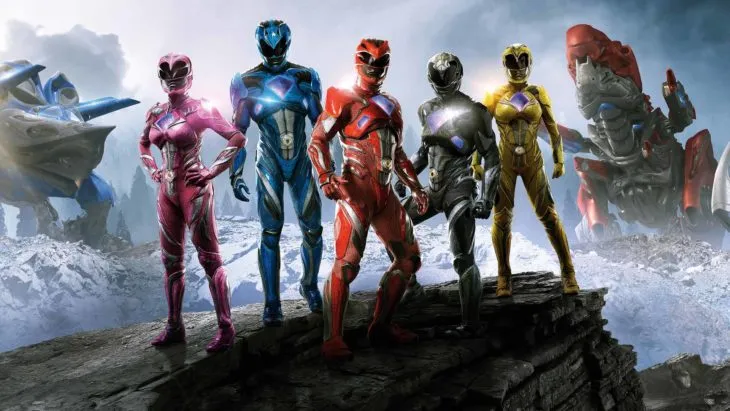 Source: Screenshot via Lionsgate
Source: Screenshot via Lionsgate9. The Amazing Spider-Man (2012)
Following the cancellation of Sam Raimi’s Spider-Man 4 in 2010, Sony’s Columbia Pictures quickly went about rebooting the franchise with a new cast and crew. The result was that within the span of a decade, we now had two Spider-Man movies telling the same origin story, albeit with specific details and characters changed around … and it was immediately clear which movie had done it better. Taking over for Tobey Maguire in the role of Peter Parker/Spider-Man was Andrew Garfield, a good actor whose gymnast background made for a much more athletic and acrobatic Spider-Man than we’d previously seen on screen, but whose portrayal of Peter Parker left much to be desired.
Garfield played Peter as a mumbly skater kid who was hard to buy as the most unpopular guy in school, and it didn’t help that the film around him was almost entirely devoid of personality or distinguishing features outside of an excellent performance from Emma Stone as Gwen Stacey. The Amazing Spider-Man did well enough at the box office to earn a sequel, but The Amazing Spider-Man 2 performed even worse from both a commercial and critical perspective. Sony cancelled the reboot series not long after and signed a landmark deal with Marvel Studios to allow Spider-Man to appear in the Marvel Cinematic Universe, a decision that has so far paid off handsomely for both parties.
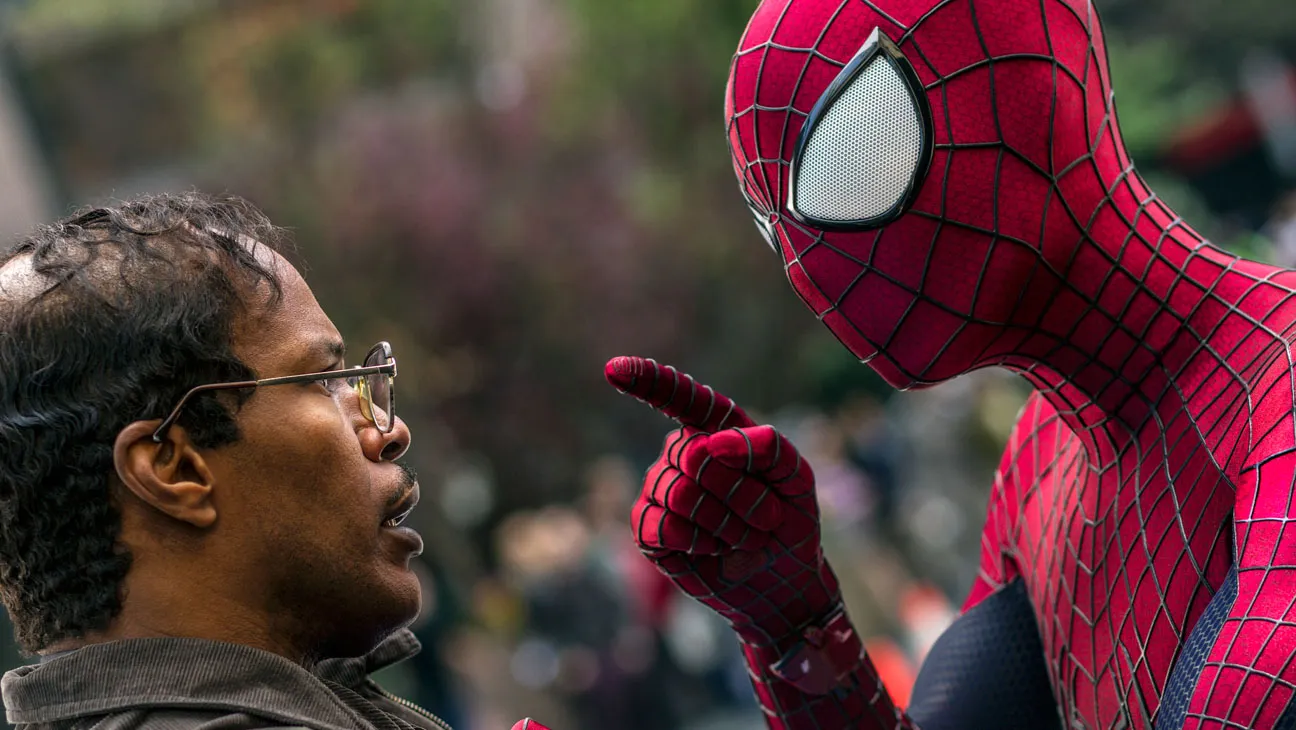 Source: Screenshot via Sony Pictures Releasing
Source: Screenshot via Sony Pictures Releasing8. Terminator Salvation (2009)
The Terminator and Terminator 2: Judgement Day will forever be remembered as two of the most iconic action/science fiction movies of all time. Unfortunately, the quality of the franchise seems to decline sharply after that. Terminator 3: Rise of the Machines was little more than an action spectacle. At the same time, the fourth movie, Terminator Salvation, took the series in a completely different direction — stepping away from time travel and following a hardened John Connor (Christian Bale) in his war against the machines. They might be an okay watch on a lazy Sunday afternoon, but neither can hold a candle to the first two movies.
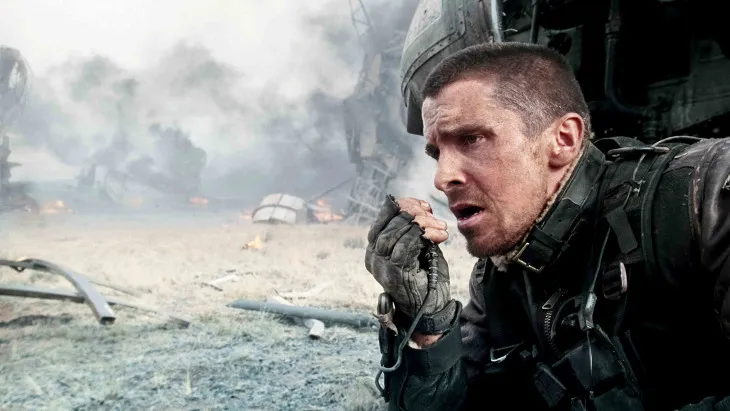 Source: Screenshot via Warner Bros. Pictures
Source: Screenshot via Warner Bros. Pictures7. Planet of the Apes (2001)
Given that the 1968 Planet of the Apes is considered a cinema classic, Tim Burton had some pretty big shoes to fill when he stepped in as the director for the 2001 remake. Unfortunately, despite becoming a moderate financial success, it still fell flat with critics and audiences alike.
Although the remake was praised for the makeup and effects used to reimagined the apes, critics were quick to point out that the script was severely lacking in originality. Critics panned the remake for going out of its way to pay tribute to the original film without adding anything new In the review of the film, Roger Ebert said, “[Burton] made a film that’s respectful to the original, and respectable in itself, but that’s not enough. Ten years from now, it will be the 1968 version that people are still renting.”
The movie also won the prize for “worst remake” at the 22nd annual Golden Raspberry Awards.
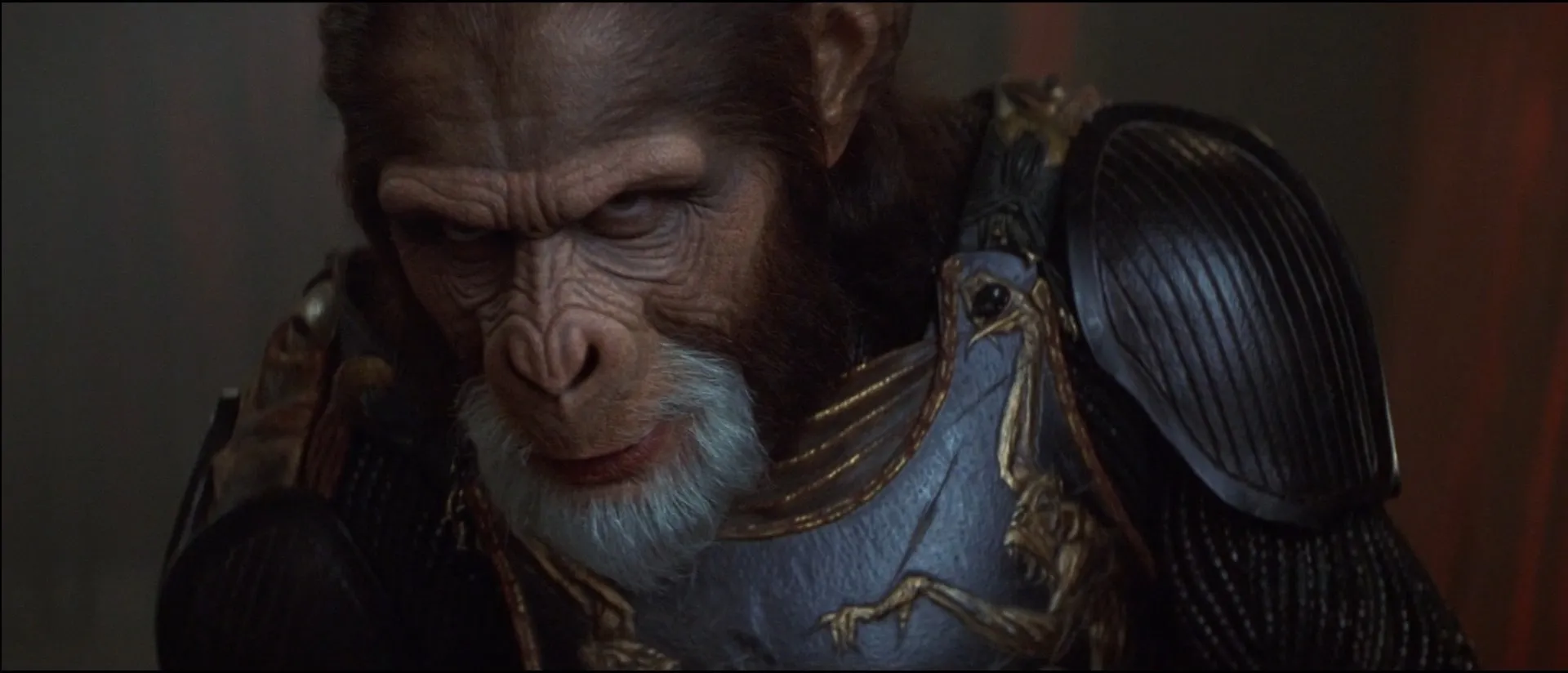 Source: Screenshot via 20th Century Fox
Source: Screenshot via 20th Century Fox6. Godzilla (1998)
Moviegoers around the world have been enjoying the classic Godzilla movies since the 1950s, so Sony Pictures probably thought they had a surefire hit when they decided to reboot the film for an American audience in 1998. Transplanting the rampaging radiation monster from Tokyo to New York certainly didn’t help the film franchise, though. Although it did take in $379 million and was the highest-grossing film worldwide that year, it was disliked by nearly everyone who saw it and only scored a 16 percent on the movie review website Rotten Tomatoes. The film was hated by fans and critics for everything from the acting, to the directing, to the CGI redesign of the titular character. The film was even nominated for several Razzie Awards, including worst picture, worst director and worst screenplay and took home the prize for worst supporting actress (Maria Pitillo) and worst remake. Despite the excellent box office showing, this pretty much squashed the studio’s original plans for a Godzilla trilogy.
However, it takes more than a few negative reviews beat the King of Monsters. In 2014, Warner Bros. and Legendary Pictures gave an American Godzilla another shot with the release of a much better movie starring Aaron Taylor-Johnson, Elizabeth Olsen, and Bryan Cranston.
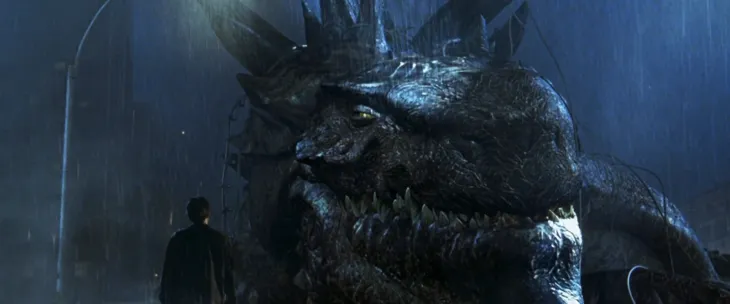 Source: Screenshot via TriStar Pictures
Source: Screenshot via TriStar Pictures5. Superman Returns (2006)
As one of the biggest pop icons ever created, it’s surprising to think that Superman disappeared from movies for almost two full decades before the release of 2006’s appropriately titled Superman Returns. Directed by Bryan Singer – who had recently launched the X-Men movie franchise – Superman Returns was supposed to be the start of a new series Superman movies. Warner Bros. even went so far as to announce the scheduled release date of a planned sequel four months before the original film also hit theaters. Unfortunately, audiences found the context of the movie a little strange. While its faithfulness is appealing, the idea of setting it within the timeline of a film series that had been in limbo for 19 years was probably a wrong move. It actually put the film at a disadvantage because it was impossible to look at Brandon Routh’s performance and not compare it directly to that of the beloved Christopher Reeve’s.
With the movie ultimately not turning out to be a great success that Warner Bros. hoped it would be, the planned sequel was scrapped, and the world had to wait until 2013’s Man of Steel to see Superman in action again on the big screen.
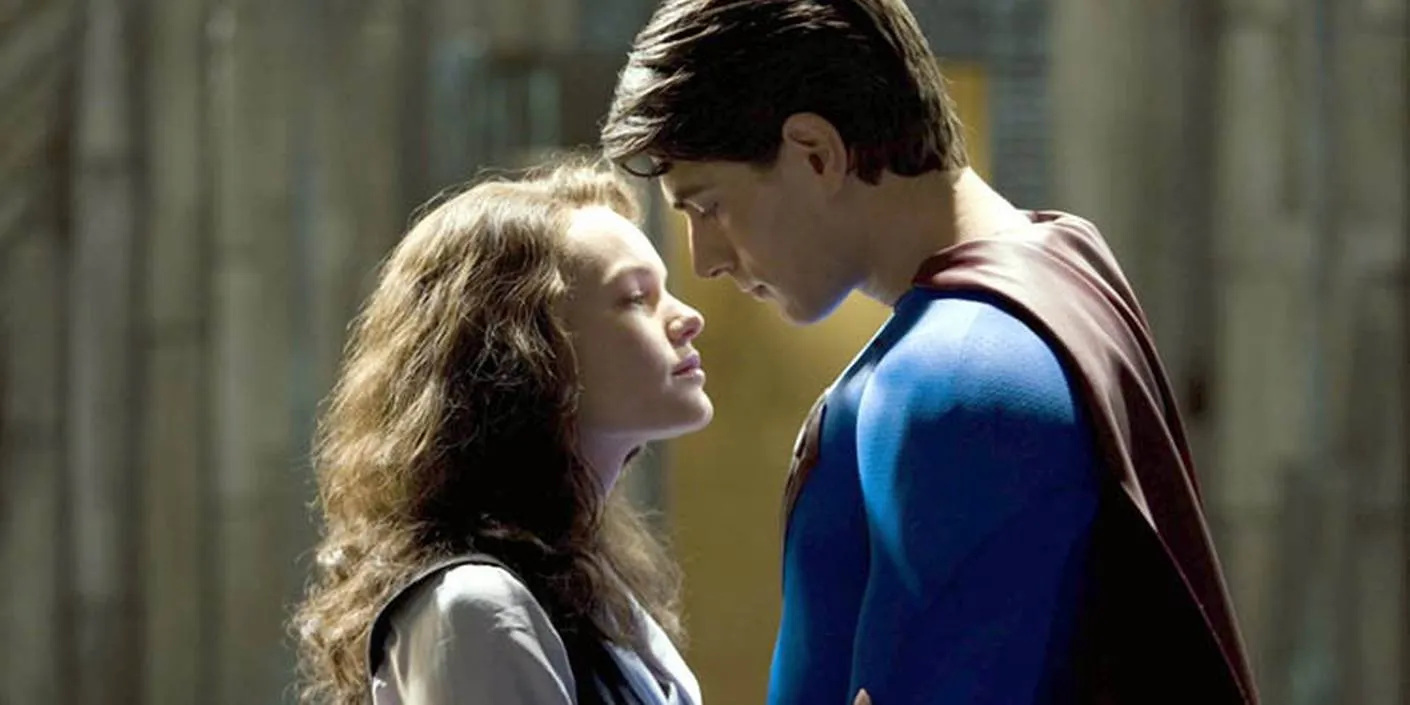 Source: Screenshot via Warner Bros. Pictures
Source: Screenshot via Warner Bros. Pictures4. The Mummy (2017)
Positioned as the launching pad for Universal’s Dark Universe, a shared cinematic universe that would include the likes of Dracula, Frankenstein, and Dr. Jekyll/Mr. Hyde (the latter of whom is played by Russell Crowe here), The Mummy is so bad that it ended up essentially killing the franchise it was supposed to introduce. It’s a shame too because Universal really could have had something here. The Mummy movies from the late ‘90s/early 2000s weren’t cinematic masterpieces by any stretch of the imagination, but they were campy fun and felt like a more supernatural-themed alternative to Indiana Jones.
Alex Kurtzman’s Mummy reboot could have just aped that tone and style, thrown in Tom Cruise — who is generally a reliable, likable leading man — and made something decent. Instead, The Mummy is boring, charmless, and spends way too much time trying to introduce monsters for upcoming films that it feels more like an extended franchise advertisement than a standalone movie. As things stand, the Dark Universe was dead on arrival, and we have only The Mummy to blame.
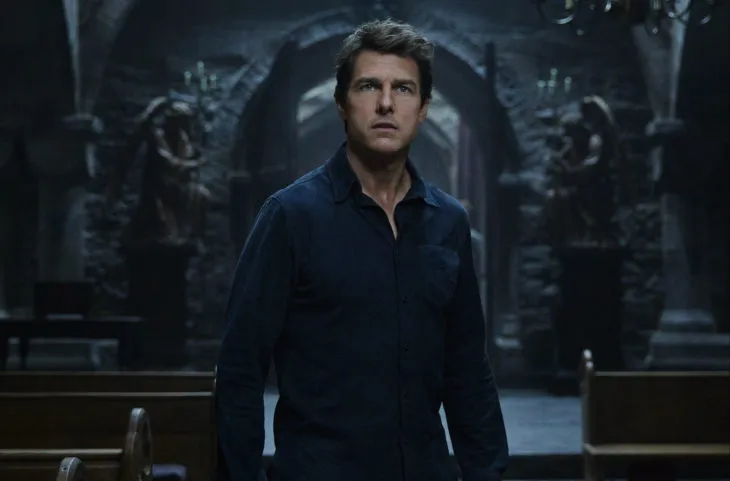 Source: Screenshot via Universal Pictures
Source: Screenshot via Universal Pictures3. Terminator Genisys (2015)
Even though Salvation failed to light the fuse on a new series of movies, was there ever any doubt that the Terminator would be back? This franchise is harder to kill than a T-1000, and this time around, Schwarzenegger was back in the saddle with the public support of James Cameron. Everything seemed to indicate that Genisys was going to be the best Terminator movie since the first sequel. It’s just a shame we couldn’t have just rode that hype train right on to the next inevitable Terminator reboot. It would have saved us all a lot of disappointment.
Though the first two Terminator movies are considered mainly masterpieces of the action sci-fi genre, they’re not immune to the logical fallacies that often interfere with films that deal with time travel. But Genisys seems to tie itself in knots of narrative logic in an attempt to create something that might pass as an exciting storyline. Having the movie’s biggest plot twist revealed in the trailers also didn’t help much.
Despite there being big plans for various sequels and television spinoffs, Genisys’ discouraging reception has resulted in the franchise having the brakes put on it once again.
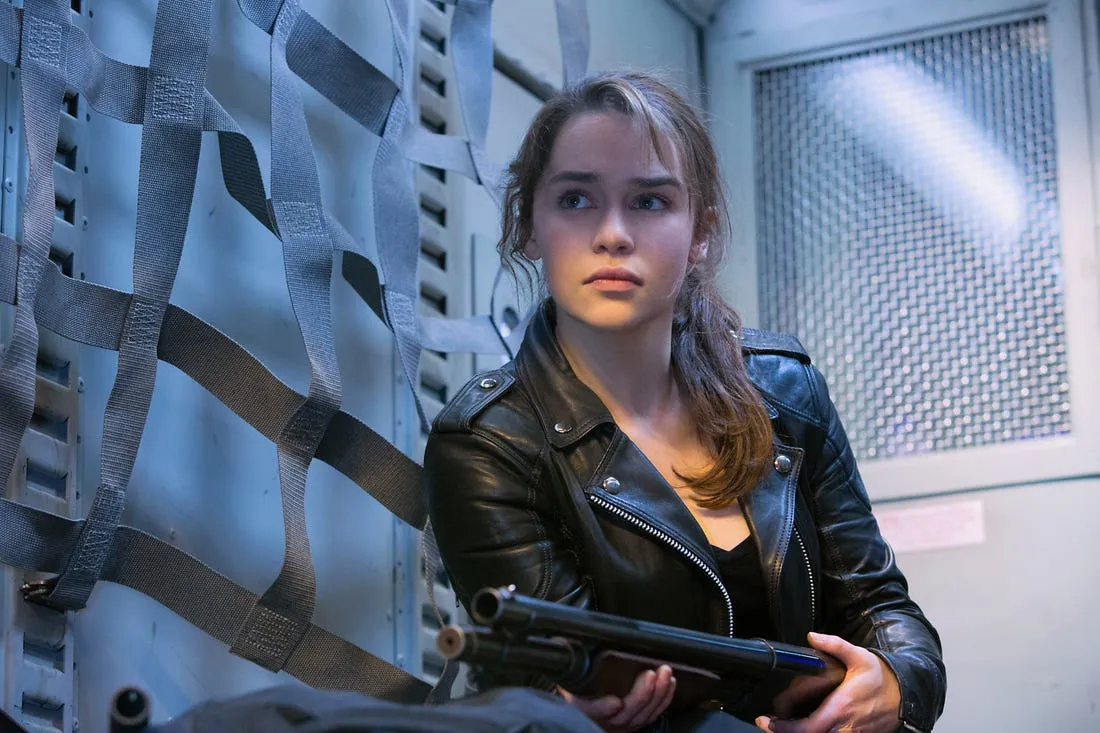 Source: Screenshot via Paramount Pictures
Source: Screenshot via Paramount Pictures2. Fantastic Four (2015)
It turns out that 2015 was an awful year for movie reboots. Not only did Terminator Genisys fail to live up to audiences’ expectations, but Fantastic Four also gained a reputation for being one of the worst movies in recent memory.
The movie attempted to distance itself from the super cheesy Fantastic Four movies from the 2000s. In the hands of Josh Trank, the director of the acclaimed and atypical superhero film Chronicle, fans were initially excited by the prospect of a darker and grittier Fantastic Four that was intended for a more mature audience. Sadly, as the 9% score on Rotten Tomatoes can attest, the reboot turned out much worse than anyone could have possibly imagined and probably left most people longing for the return of those colorful characters from the previous films.
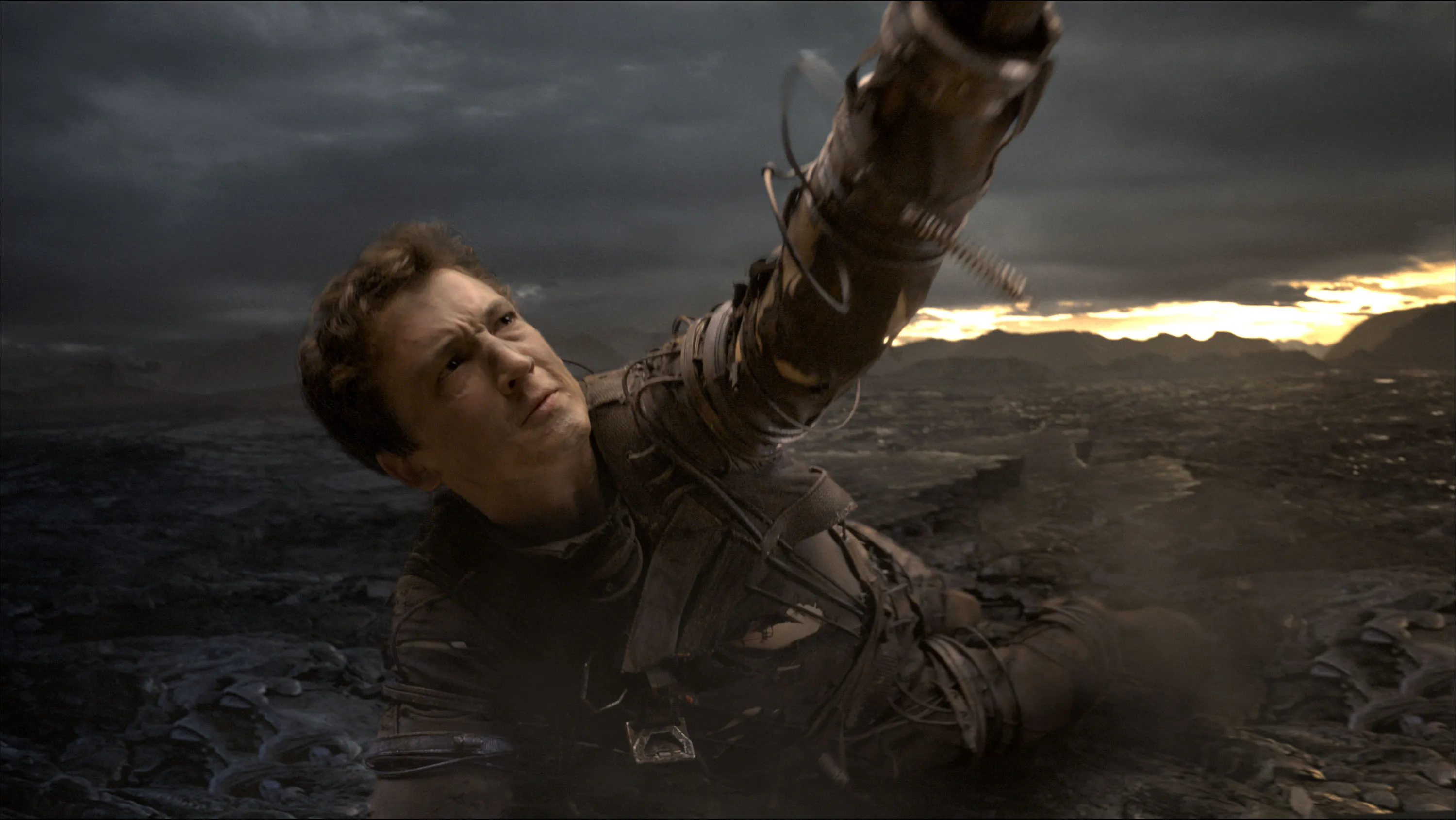 Source: Screenshot via 20th Century Fox
Source: Screenshot via 20th Century Fox1. Indiana Jones and the Kingdom of the Crystal Skull (2008)
Fans around the world kicked up their heels and rejoiced when they heard the announcement that Harrison Ford would be teaming up with Steven Spielberg again to make a fourth Indiana Jones movie. But for whatever reason, be it the lack of Nazis, the inclusion of Shia LaBeouf, or the insertion of aliens into the Indian Jones universe, Kingdom of the Crystal Skull didn’t sit well with a lot of people.
Though film buffs still debate whether this movie was intended to set up a new series of films or not, the inclusion of Shia LaBeouf as Indy’s objectionable son does seem to suggest they were looking to extend the life of the franchise.
Now that we know we have a fifth Indiana Jones movie on the way let’s hope that Spielberg has learned from his mistakes.
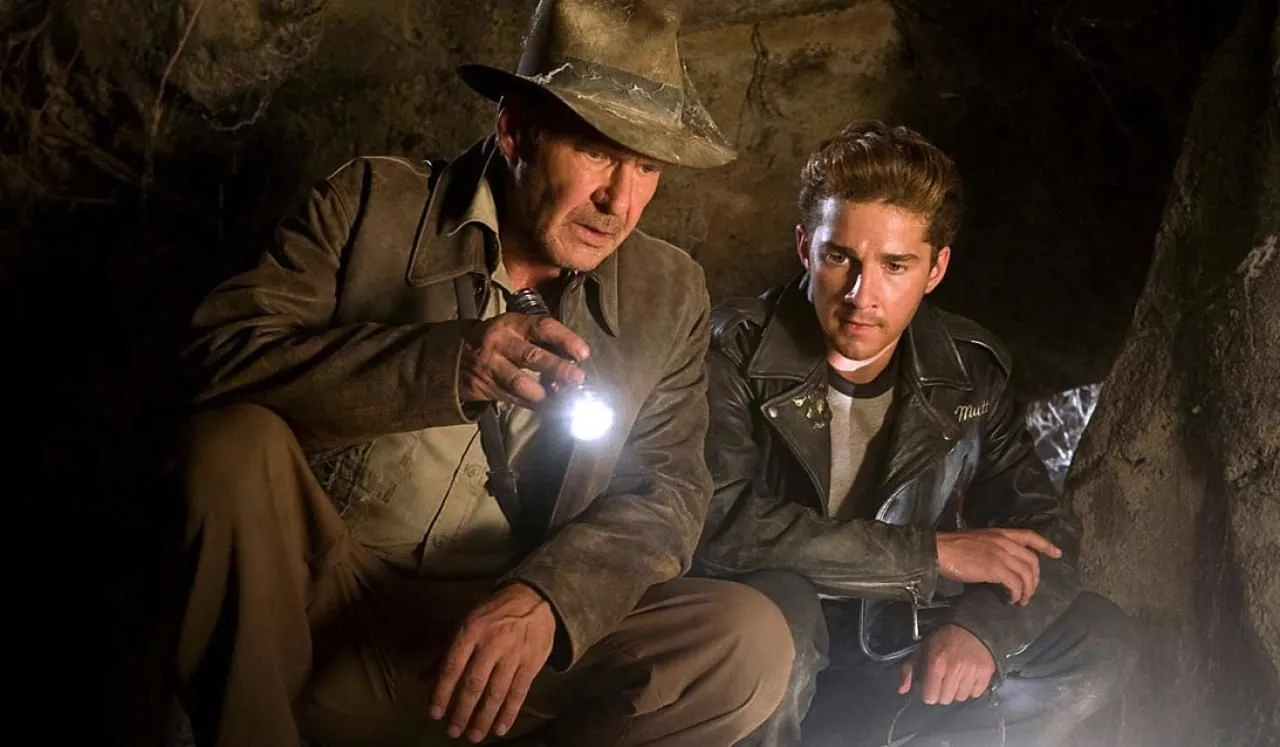 Source: Screenshot via Lucasfilm Ltd.
Source: Screenshot via Lucasfilm Ltd.